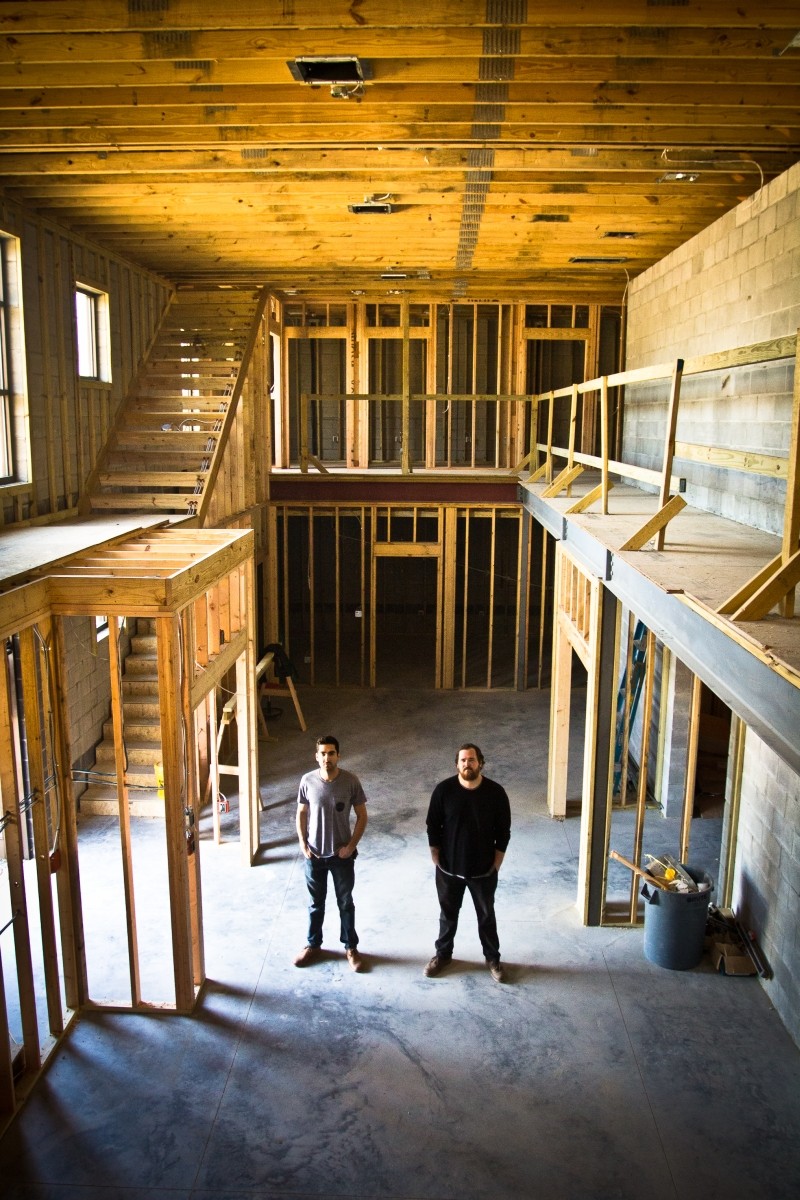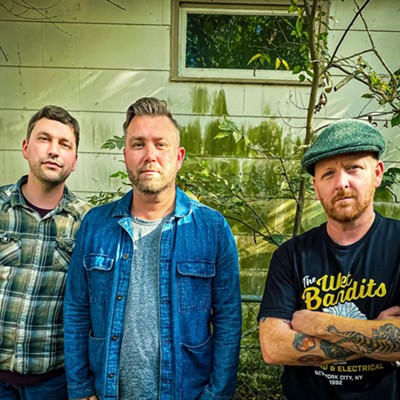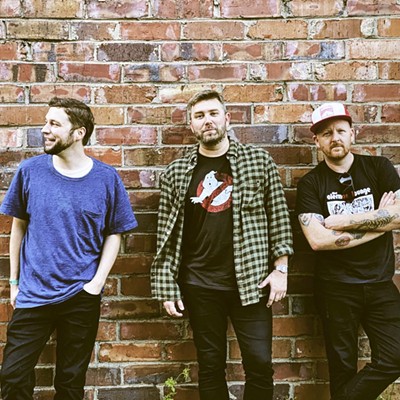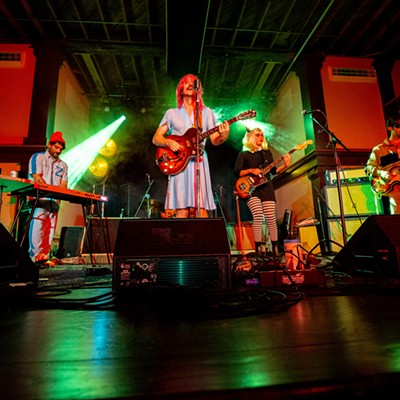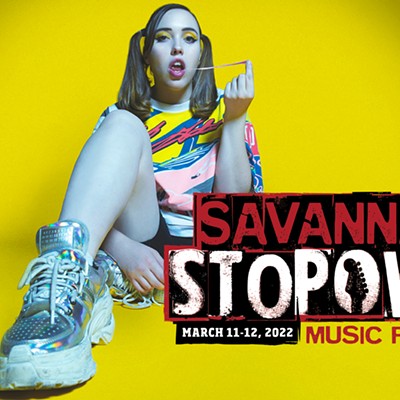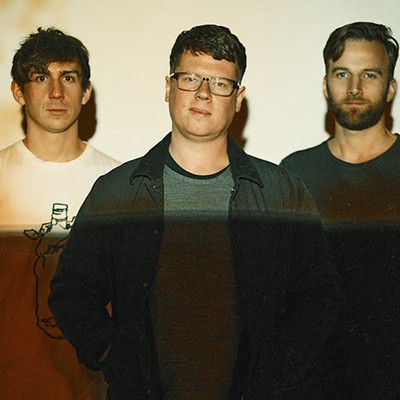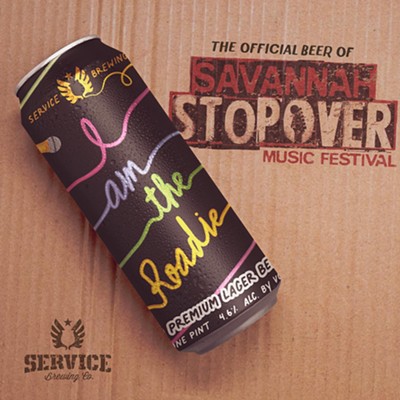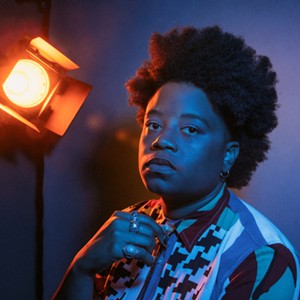LAST WINTER, I bumped into Bear Fight's Matt Collett at our favorite after-5 destination: happy hour at The Jinx.
As we caught up, his eyes lit up with excitement.
“I gotta tell you about my new project,” he gushed.
I expected the seasoned drummer to describe a new band he’d pulled together—after all, you can catch him all around town, sitting in with a diverse array of musicians.
But as we sipped our tallboys, he began painting a picture of a musician’s haven: spacious, secure, private rehearsal rooms, rigged so that any idea or riff can be easily recorded in an a-ha! moment. An entire floor of lesson rooms, occupied by first-rate music teachers. A recording studio. A lounge area where tenants can congregate between practice sessions.
It pretty much combined the spirit of the place right where we were sitting—a venue where local musicians gather to catch up, brainstorm, and perform—with the functionality of 12 Below, the short-lived Broughton Street rehearsal spaces that Collett and his bandmate, Colin Motlagh, used to manage around 2009.
We’ve all got big dreams for how to make the music scene in this town the best it can be; we can sit and talk all day about what we’d make if we had the time, the space, the funding.
But at that point where the conversation usually leads to dreamy, far-off staring and sighs of “if only...,” Collett reached into his back pocket for a huge, folded piece of paper.
“Wanna see the blueprints?”
He was for real.
The Garage is a concept, Collett explained, that he and Motlagh had been talking about for years. About seven years ago, they began making solid plans. The two grew up playing music in Savannah, and have dedicated themselves to making a space to their exact specifications.
Selecting a moniker that embodied their dedication to DIY ethics, raw sound, and community, the duo got to work. Rather than retrofitting an existing space—a costly endeavor for a place that has such specific and considerable electrical needs—Collett and Motlagh decided to build their own place from the ground up. Right off 69th Street at Paulsen, it’s an easy drive from downtown. Plans and permits were approved in April 2014, and site work began in May; The Garage is slated to open in late January or early February. I stopped by last week after the electrical wiring was completed, days before the insulation and drywall would go up, to get a look at the bones of the 5,800 square-foot maker’s space.
The downstairs houses six private rehearsal rooms flanking the east and west sides of the building. Several bands, including The Accomplices, Cusses and Whaleboat, have already called dibs on the coveted spaces.
The entrance into the practice space area will serve as a common room, complete with couches and a TV. It’s also home to the J.V.A. Savannah Music Library, an archive of Savannah-based cassettes, vinyl, and CDs, dedicated in memory of close friend Jonathan Athon. It’ll be set up so that you can listen right there, on a comfy vintage couch; eventually, Collett hopes for it to act like a lending library.
In the center of the room, doors swing open to a vast studio with 20-foot-high ceilings. The height’s a way of capturing natural reverb and full-kit drum tones—a priority for Motlagh and Collett, both rhythm section players, who will take turns behind the board.
A glimpse up from the floor of the studio, and you’ll see a second-story window into the control room, giving the engineer a bird’s-eye view. It’s an all-digital studio equipped with a 16-channel mixer.
“It’s what we need,” Motlagh says, motioning to Collett and himself, “as consumers and musicians.”
They bring up the significance of the name again—The Garage—and, in a way, the recording studio is like a home studio (or home-away-from-home, as they hope The Garage will be to many). They want to be able to catch those raw, live takes and help bands get their ideas fleshed out.
One of the coolest aspects of The Garage is that every practice room is equipped with cat 5 cable that’s routed back to the mixer. If a band’s writing something new, Collett or Motlagh are on hand to set up a few mics in the room to capture a quick sketch—it’s higher quality than a cell phone recording, and an inclusive part of The Garage experience.
From the control room, they take me around to the six lesson rooms, past a large wall that local artists Jose Ray and Tim Foster will soon adorn with a mural. When The Garage officially opens, five teachers from Savannah Musician’s Institute will occupy the rooms, bringing 100 students with them.
The founders are thrilled to be working with a collective that focuses on creating lifelong musicians, and have set up the rooms to ease the process along; lessons can be recorded, and students can take their sessions home on a USB drive. If a kid writes a song on guitar, the staff is on hand to throw some drums and bass down on it so the writer can hear their ideas with a full band, and downstairs occupants are welcome to join in, too.
It’s a kind of cross-generational music community-building that we haven’t really seen in Savannah: a place for burgeoning musicians to meet and establish a lifetime connection, much like Collett and Motlagh, who have played together in bands for years.
“We never want kids to stop playing because they can’t find a place to jam,” says Collett. And it’s not just for the young’uns—Collett knows that finding a secure practice space where a band can fully let loose in Savannah is a difficult task.
“I can’t remember the last time—that wasn’t a gig—that I just set up my drums and played,” Collett says. “This everything we’ve ever needed, all in one place.”
Looking to the future, there’s talk of workshops, demos, skill shares; it’ll all come in time. For now, Collett and Motlagh are excited to open their doors and share their visionary space with Savannah.
“This is what we wanted growing up,” Motlagh says.
Thanks to them, a new generation can have it.


